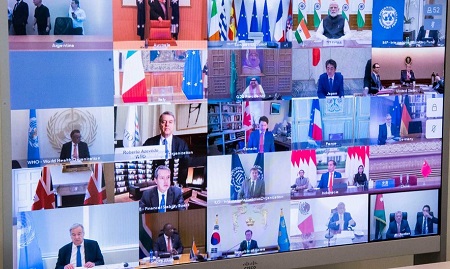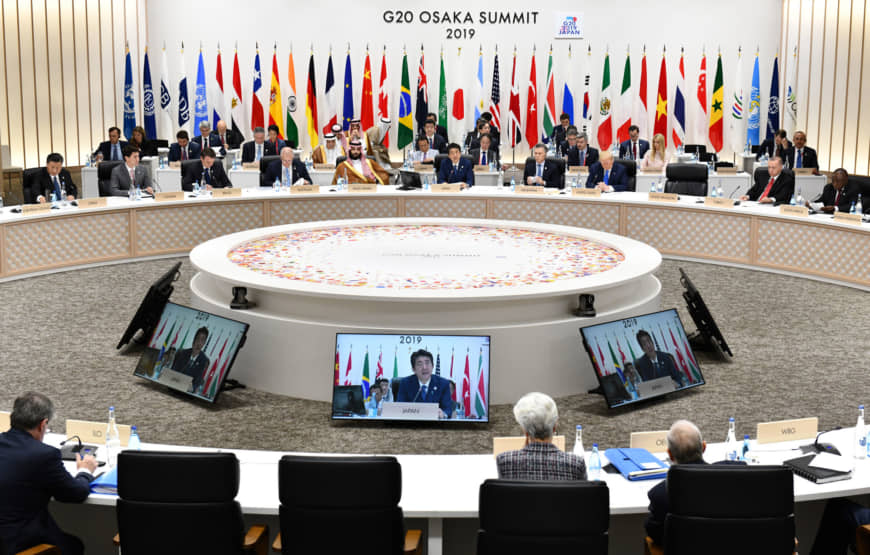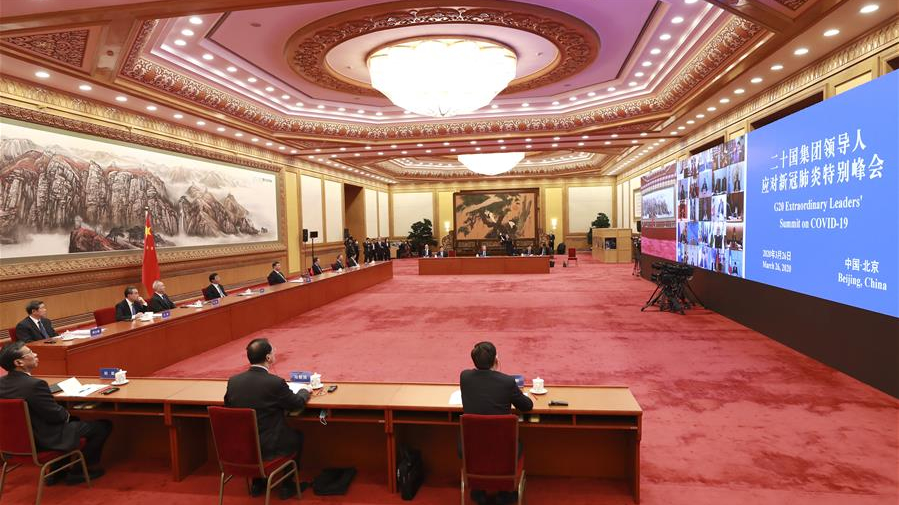
Virtual G20 world leaders’ meetings on COVID-19 and economy
In pursuit of a concerted approach to finding solutions to the global problems created by the coronavirus, COVID-19, the G20 world leaders have started preliminary meetings at the ministerial level.
A series of virtual meetings were held last April at which various decisions were taken.
Virtual meetings took place at the finance ministers and central bank governors; trade and investment; agriculture; labour and employment; tourism; and energy ministerial levels.
Advertisement
According to a communique issued after the finance ministers’ and central governors’ meeting, the G20 (minus the United States that boycotted the events) recognised it as an “urgent collective priority” to defeat the pandemic and to resolve the global health, economic, social and political problems it has caused.
In a statement, the March 30, 2020 meeting, had described COVID-19 as a global pandemic that demanded “a coordinated global response’’.
On March 26, 2020, the meeting decided “to present a united front against this common threat”.
At the agricultural ministers’ virtual meeting in April, 2020, the G20 “acknowledged the challenges of minimising the risk of COVID-19 while keeping food supply chains functioning”.
It was emphasized, in an agricultural ministers’ statement, that the emergency measures taken to combat the spread of the virus – should not create unnecessary border problems and must be in accord with World Trade Organisation (WTO) rules.
On food price instability, the statement said the leaders pledged to reinforce international cooperation to guard against unjustifiable restrictive measures that could lead to excessive food-price volatility in the markets or threaten food security.

A statement from the labour and employment meeting was concerned that because of the environment created by the virus, workers were confronted with “elevated risks of job losses, reduced working hours, suspended employment relations and income loss”.
The statement noted that the meeting committed to promoting employment by bolstering social protections, stabilising labour relations, and ultimately minimising the effects of the pandemic on operations, resources supply chains and work forces.
On the tourism ministers’ meeting on April 24, 2020, a statement projected that international tourism would decline by between 45 and 70 per cent in 2020 because of the pandemic and the containment measures being applied to curb its spread.
The restrictive measures placed on tourism would also put at risk 7.5 million jobs, the same year.
To minimise the impact, the ministers undertook to work with the relevant authorities “to ensure that the introduction and removal of travel restrictions are coordinated … and ensure the safety of travellers”.
On energy, the energy ministers, according to a statement issued after their April 24, 2020 meeting, committed themselves to ensuring uninterrupted flow of energy.
At the meeting on trade and investment, according to a statement, the group committed itself to “work together to deliver a free, fair, indiscriminative, transparent, predictable and stable trade and investment” and to keep the global supply chains functioning.
Meanwhile, in a collaborative effort, world leaders have made a big push to expedite the development of drugs and vaccines to combat COVID-19.

At a video conference in April, 2020, world leaders, including President Emmanuel Macron of France, Chancellor Angela Merkel of Germany and President Cyril Ramaphosa of South Africa, resolved to expedite work on the development of drugs and vaccines against the pandemic and to ensure that both rich and poor countries get access to them.
At the video conference, the world leaders launched what the WHO termed a “landmark collaboration” in the fight against the pandemic.
COVID-19, the novel coronavirus, is a global pandemic that has engulfed the Earth Planet. It has no respect for national borders. In about four months, it has infected over 5.5 million persons and killed 347,166 in 213 countries.
The World Bank has projected that the economic impact of the virus would be worse than that of the Great Economic Depression of the 1930s.
The International Labour Organisation (ILO) has indicated that global job losses would be up to 305 million which is 10.5 per cent of the total workforce. Some 1.6 billion informal workers, according to the ILO, risked having their livelihoods destroyed.
No single country can face and defeat the virus because of its rapid, hideous, destructive and highly infectious nature.
That is why a concerted effort is needed to combat it and remove it from the surface of the earth.
It is commendable that world leaders have recognised how very important it is for all humanity to come together physically, mentally and spiritually to defeat a common enemy that seeks to wipe out the human race.
Unfortunately, the US President, Donald Trump, has decided to stay away from the meetings and others that seek to find solutions to the virus and to the global health, economic, social, political and cultural problems that it presents.
[email protected]



